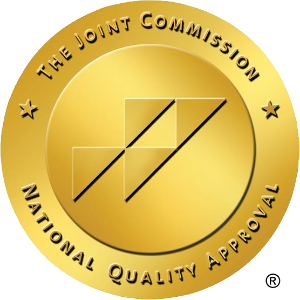Relationships in a life of recovery are difficult for both men and women, but women face specific and unique challenges in their personal relationships. We have recently discussed addiction and how it affects women in different ways than it does their male counterparts. Women often are faced with barriers to getting help, programs not designed for them, and an unfair social stigma that surrounds addiction and recovery.
After facing all of these challenges and getting help with your addiction it is time to start integrating back into everyday life. A major aspect of reintegration is reevaluating your previous relationships and building new ones. Often relationships from your days of addiction are not healthy and can actually end up hurting you in a life of recovery, meanwhile, it can be difficult to build new relationships while trying to start a new life. Despite these struggles, it is important to form a support system in the form of friends and family members that you can trust when the going gets tough.
Reevaluating Old Relationships
The first step in your life of sobriety is to look at the relationships from your past and decide which ones are healthy for you going forward. Relationships with your family, friends, and acquaintances will all need to be looked at through a critical lens.
As you break down these relationships you need to evaluate whether they have the understanding and compassion needed to support you and help you grow as a person. This process will not be an easy one and will take up much of your energy, but it is necessary for you to thrive in the future.
Relationships with your parents and loved ones are where you should start. These close relationships are often the longest you have experienced in your life and thus must be addressed first. It is important to try and separate your critical and emotional feelings so that you can set up distinct boundaries and make your feelings clear.
Sometimes these relationships are easily adjusted to your new lifestyle, but just because they are family doesn’t mean they will understand your new priorities immediately. Remember to be patient but firm with your guidelines so that you can morph your relationship into a mutually beneficial and loving one.
As you move on to your more casual relationships with friends it is important to see think critically about what you have in common. If most of your history just involved post-work drinks then maybe it will be healthier to distance yourself and instead focus on building relationships with people that you have more in common with.
Despite the emotional difficulty and social awkwardness of talking openly with your family and friends, it is important to have healthy relationships on your journey of sobriety. Having people you can turn to and trust will help you avoid loneliness which can lead to relapse and other negative actions.
Building New Relationships
Many newly sober women find that a lot of their previous relationships were unhealthy or based around unhealthy habits and are forced to go in search of new relationships. This task seems daunting at first but it is not impossible.
Looking for relationships in group therapy or in your hobbies outside of work are great places to start. If you meet in group therapy, you immediately have something in common and a mutual understanding of the difficulties of recovery with that other person. Similarly, if you make friends within a hobby you can have a common conversation point and shared experiences with someone right off the bat.
No matter where you meet new people you should look for shared experiences, common ground, openness, and authenticity. People who treat you how you want to be treated and also are willing to listen and help you grow are a huge ally in your life of recovery.
Once you have found people who you can connect with it is important to slowly start building on that relationship. Start to challenge your friend and yourself to open up about things that are bothering you or challenge yourself to share aspects of your past in more detail than ever before. This openness will build trust and understanding, which in turn will make the relationship more deep and beneficial for both of you emotionally.
This natural progression of the friendship is important but you must tread carefully and respect both your boundaries and your friend’s boundaries. Sharing deeper thoughts and feelings is only beneficial when you are both comfortable and willing to be open.
Relationships in Recovery
As a woman in recovery, it is essential to enhance old relationships and build new ones. These relationships will make you happier in your everyday life while helping you avoid common problems early in a life of recovery.
Women in recovery all have to deal with initial challenges that can lead to a relapse. Essentially anything that played into the addiction in the first place can cause a relapse. Common causes of relapse are body image concerns, stress relief, boredom, and intimacy concerns. All of these issues can be better handled when you have a trusted family member or friend to talk to about your difficulties.
The benefits of having confidants don’t stop with the early stages of recovery. As you continue to grow and evolve in a life of recovery different issues can arise that are more easily quelled with the help of friends and family members. Women are often faced with more unique and specific challenges further down the line. Life events like breakups or divorces, changing hormones with age, or simply the anniversary of sobriety can cause relapse and difficulty.
Throughout your life of sobriety, you will find that the benefits of having people close to you that you can trust will significantly outweigh the short-term difficulty or awkwardness of building those relationships. It is vital to add this informal support system to your more formal support groups to help you deal with all of the difficulties a life in recovery poses.






